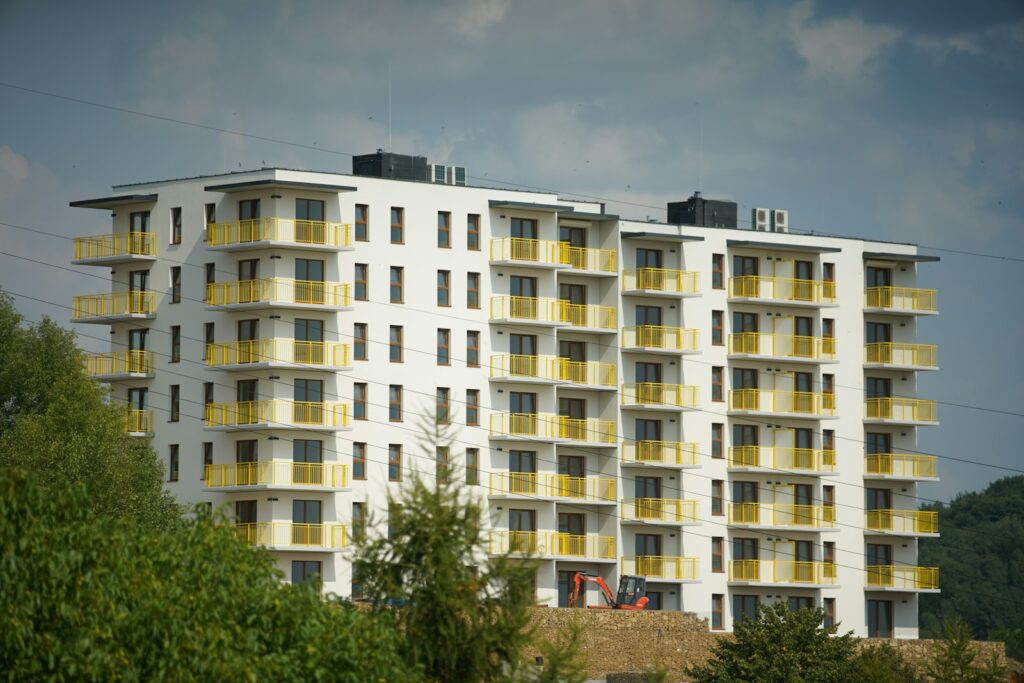James Tickell, partner at management consultancy Campbell Tickell, sits down with Housing Ombudsman Richard Blakeway to discuss his priorities and outline what he thinks needs to change in the sector
What was your agenda when you started as the Ombudsman?
I was appointed just after the Green Paper on social housing in 2018, so my agenda was heavily influenced by the need to deliver on the aspirations set out by the paper. Residents had outlined their views about how landlords
should be responsive, accessible and aware, so I also had a really strong idea that complaints should be a catalyst for change, and that I needed to focus on systemic issues. The Ombudsman could and should become more central to the tenant-landlord relationship.
And now, some years on, you’ve been given a whole range of new powers. Maybe some people dread your involvement?
Yes, some people are like that. They say it’s nice to meet you but go on to hope that they don’t have to meet me professionally.
But an Ombudsman needs to occupy a space which is different to a regulator, or to the courts. The important thing is to develop learning from complaints so that organisations can develop and improve services. There’s an engagement you can have which is outside individual dispute resolution, more a space for learning.
When I started, I’m not sure there was recognition for the role the Ombudsman should perform – it was all quite transactional. It was just the end of the complaints process – quite narrow and limited. The ombudsman has a lot more discretion, which is different for other actors. We have an inquisitorial approach to evidence gathering. I would like to think now that the Ombudsman is being seen in a broader way, part of the fabric of a successful housing sector.
At the beginning, some people could be very defensive about our findings, some were even dismissive. But with time and progression with housing sector relationships, that’s become less common.
Recent events underline the importance of having an accessible complaints process, which is not an adversarial space. I’m committed to transparency and want people to understand the way in which we make our decisions and investigate complaints – it’s very different to a court of law. I’d like to think now that we are part of the fabric of the sector. Now that we’ve started to publish our decisions more frequently, the transparency is proving beneficial.
So when landlords make mistakes, sometimes it’s about organisational culture perhaps, or perhaps sometimes about data loss?
It is 100% about culture and that cannot be underestimated. It’s about leadership and behaviours. The culture needs to be one of positive complaint handling, not being defensive, and learning. You need strong leadership to achieve that. And you’re right about information too – in the damp and mould report we published in October last year, we were making the point that the sector needs to become proactive with resident reports.
And what about your own leadership style, as the head of the Ombudsman service?
About two years ago, we looked at our vision and values and we incorporated the idea that they were not only about resolving individual complaints, but about promoting learning and improvement. We came up with four very simple values: fairness, learning, openness, and excellence. Our plan is based around those, and every two weeks we come together as a whole organisation to look at one of those values.
I meet everyone regardless of their role who starts work at the Ombudsman, in a one-to-one meeting and we get to know each other. I’m struck at how many new starters talk about the attraction of our culture and values. It’s a collegiate experience working here, and my leadership has to reflect that.
Is there another Ombudsman who you particularly admire?
I think the Ombudsman in Ontario, Canada is doing some important work. He has really championed the idea of systemic investigations, taking an independent impartial perspective. For instance, he did a big investigation into the time that certain prisoners were being kept in solitary confinement, and he discovered that the policy wasn’t being correctly implemented and that some people were in solitary for 10 times longer than they should have been. It was amazing. He took one complaint and then established data across several hundred instances.
I also think the local government Ombudsman here in England does a great job. The work that they have done around data and transparency is ground-breaking. Now anyone can go on their website, put in their postcode and see exactly what issues have been raised in their neighbourhood.
Finally, I love the way in Holland the Ombudsman just shows up and sits in a supermarket or shop and people can just come and meet and talk to them about their work. It would be great to replicate something like that here. I already do lots of engagement and every three months or so we have a meeting hosted by a different landlord in different parts of the country where people can come along and ask anything.
That sounds really positive. Maybe you’ve got a few headline messages for chairs or chief executives who might be reading this interview? What have you got to say to them?
Well, I’d like to ask them how their leadership delivers the culture that is needed?
Secondly, I’d like to ask about their communication with residents and if they are sure that they are effective? And then I’d ask, have they thought about the insight that their complaints team can bring to service improvement?
I do think it’s important to make a big distinction between compliance and learning. Compliance is hard-wired, but the learning sometimes seems a bit of an afterthought. I do think landlords could develop a much better approach.
Boards need to be thinking about their role as a governing body in terms of complaints. They should be championing the complaint stream, treating it almost like internal audit. As I’ve said, we need to move away from a transactional view of complaints and start using them to identify risks that might not be supported elsewhere. Damp and mould are a real case in point.
I also think that board members need to go out and see the homes and meet tenants. Not necessarily the homes which are freshly painted, or nice new builds.
I would say to them that it’s worth reading our decisions. Not just getting briefed on them or reading a summary but sitting down and reading the full report. Because where our findings point to severe maladministration, the report will tell you a lot.
Photos by Trayan and Leohoho


















Leave a Reply